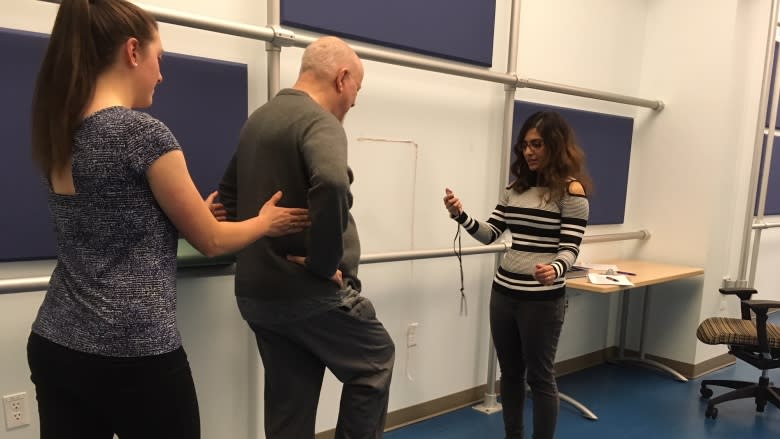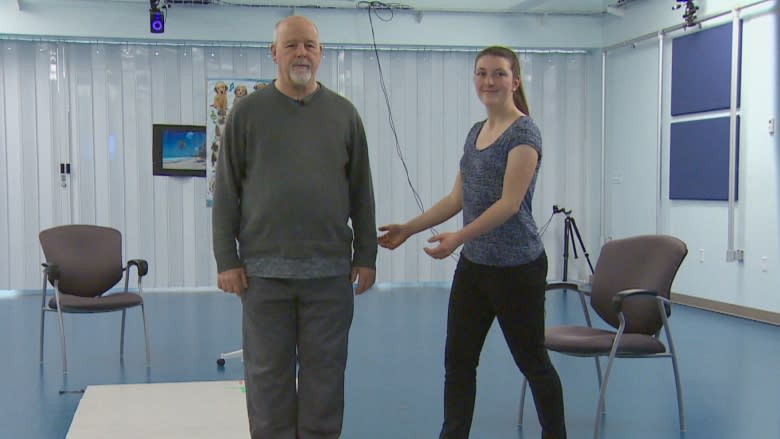UNB study hopes to help seniors at risk for falls
David Wells has been walking over a mat with built-in sensors in the performance lab at the University of New Brunswick in Fredericton.
The sensors assemble a picture of where he puts the most pressure, using 1,600 data points per second.
The 78-year-old is part of a study being conducted by masters student Sana Oladi.
Wells had a recent fall in his driveway, injuring his head. He had another fall when he tripped over cables in a classroom.
"My son Trevor claims that I am the stumbliest person in the world. I disagree with him, but I know I lose my balance a lot."
Wells is hoping that by taking part in Oladi's study he will find out why he is losing his balance.
Likely to fall
That's also Oladi's goal. She's hoping the study will help assess whether the way seniors walk or stand can predict whether they are more likely to fall.
"We are looking into different data that we can get from people's footsteps," said Oladi.
The researcher is testing two age groups: those over the age of 65 that have recently fallen and those that haven't.
Each person's footsteps are recorded and analyzed.
"We're interested to see if we do see differences," said Oladi. "The hope is we want to use this data to identify people who are at risk of falling."
One of the tests has Wells standing on the embedded sensors with his eyes closed. The sensors show the weight on his feet fluctuating as he tries to hold still.
"When people close their eyes they tend to sway around, and this is another thing, so how much are you swaying?" said Oladi. "It's something that our sensors give us. We get to compare it and say, 'OK, you were swaying this much, and compared to a person who had never fallen down, you swayed way more, so this could be an indicator that you were at risk of falling.'"
Date assesses risk
Oladi said this data collection provides a launch point for further study into simple ways of assessing the increased risk of falls.
She added things can be done to decrease that risk from exercises like tai chi, or yoga, or other activities specifically targeting balance.
Oladi encourages seniors to do all of those things, because it can be the fear of falling that can inhibit someone just as surely as falling.
"There's been a lot of research about how people who could've had perfect health, healthy lives because they're afraid of falling again they put so many restrictions on themselves, that they're not active anymore," she said. "They force an early retirement on themselves."
To date, Oladi has tested 83 people but is looking for more volunteers for her study. She hopes to have a good sense of the data by the spring.
Anyone who wants to participate in the study, is over the age of 65 and has had a fall within the last year can contact Oladi by email at Sana.Oladi@unb.ca or by calling 506-897-2249.





